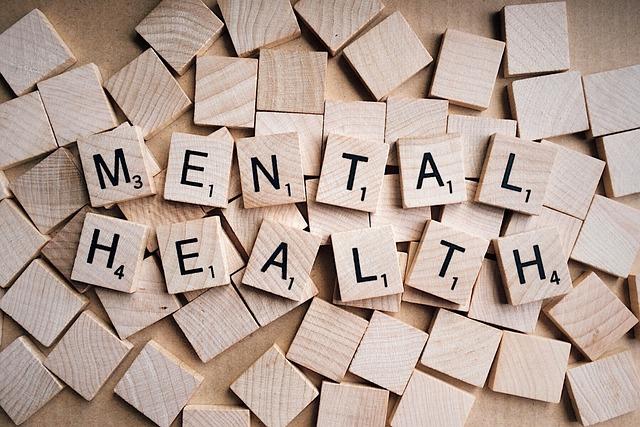In the fast-paced corridors of modern life, where ambition often outpaces the ticking clock, the term “hustle culture” has emerged as both a badge of honor and a source of contention. This relentless pursuit of success, characterized by long hours and an unwavering commitment to productivity, has woven itself into the fabric of contemporary society. Yet, as we glorify the grind, a pressing question arises: at what cost to our mental well-being? This article delves into the intricate relationship between hustle culture and mental health, exploring whether the drive to achieve is indeed fueling progress or quietly eroding the foundation of our psychological resilience. As we navigate the complexities of ambition and self-care, we aim to unravel the impact of this cultural phenomenon on our minds and souls.
The Rise of Hustle Culture and Its Psychological Impact
In today’s fast-paced world, where success is often measured by relentless productivity, the concept of hustle culture has taken center stage. This ethos glorifies working long hours and constant grinding, often at the expense of personal well-being. While the drive to achieve and excel can be motivating, the pressure to consistently hustle can lead to significant psychological consequences.
- Burnout: The constant push to be productive can result in physical and emotional exhaustion.
- Anxiety: The fear of not doing enough or falling behind peers can fuel persistent worry and stress.
- Loss of Identity: When self-worth becomes tied to productivity, individuals may struggle to find value outside of work.
As people navigate the demands of hustle culture, it’s crucial to balance ambition with self-care, recognizing that success should not come at the cost of mental health.

Unpacking the Stress: How Constant Hustling Affects Mental Well-being
In the whirlwind of modern life, the hustle culture often appears as a badge of honor. Yet, beneath its shiny exterior lies a potential threat to mental well-being. The relentless pursuit of success can lead to chronic stress, which manifests in several ways:
- Burnout: The cycle of overworking without adequate rest can drain mental energy, leaving individuals feeling depleted.
- Anxiety: Constant pressure to perform can elevate stress hormones, triggering a persistent state of worry.
- Sleep Disturbances: The never-ending to-do list may keep the mind racing, disrupting sleep patterns and affecting overall health.
These stressors can accumulate, creating a feedback loop that further deteriorates mental health. It’s crucial to recognize the signs and strive for a balanced approach to work and life, allowing space for relaxation and self-care.

Navigating the Fine Line Between Ambition and Burnout
In today’s fast-paced world, the relentless pursuit of success often blurs the line between productive ambition and overwhelming exhaustion. Hustle culture champions the idea that more work equates to more success, but at what cost? Many individuals find themselves trapped in a cycle where rest is seen as weakness, and the pressure to always be “on” is unrelenting. This culture can lead to several adverse effects on mental health, such as increased stress, anxiety, and even depression. The glorification of constant productivity may indeed drive some to achieve great heights, but it can also foster an environment where personal well-being takes a back seat.
- Perfectionism: The desire to excel in every task can lead to chronic stress.
- Lack of Boundaries: Work-life balance becomes skewed, leading to burnout.
- Social Isolation: Prioritizing work over relationships can harm social connections.
Finding a sustainable balance requires a conscious effort to prioritize mental health alongside career goals. By redefining success not solely as professional achievement but also as personal fulfillment and well-being, individuals can create a more balanced and healthy approach to ambition.

Strategies for Balancing Ambition with Mental Health
Finding a middle ground between relentless ambition and maintaining mental well-being is essential in today’s fast-paced world. Here are some strategies to achieve this balance:
- Set Boundaries: Clearly define your work hours and stick to them. This helps in preventing burnout and ensures you have time for self-care.
- Prioritize Tasks: Use techniques like the Eisenhower Box to distinguish between urgent and important tasks, allowing you to focus on what truly matters without overwhelming yourself.
- Practice Mindfulness: Incorporate mindfulness practices such as meditation or deep-breathing exercises into your daily routine to help manage stress and stay grounded.
- Seek Support: Build a support network of friends, family, or professionals who can provide guidance and encouragement when the pressure mounts.
- Embrace Flexibility: Recognize that goals can evolve and it’s okay to adjust your plans. Flexibility can reduce stress and open new opportunities.
Balancing ambition with mental health is a dynamic process that requires ongoing attention and adjustment. By implementing these strategies, you can pursue your goals while safeguarding your well-being.
In Retrospect
In the relentless rhythm of modern life, where the pursuit of success often drowns out the whispers of well-being, the question of whether hustle culture is harmful to mental health remains ever-relevant. As we navigate this complex landscape, it becomes crucial to strike a balance between ambition and self-care. While the drive to achieve can propel us forward, it is essential to recognize when the scales tip toward burnout. By fostering a culture that values rest as much as resilience, and mindfulness as much as motivation, we can pave a path that honors both our aspirations and our mental health. perhaps the true measure of success is not just what we achieve, but how we feel as we journey there.


































